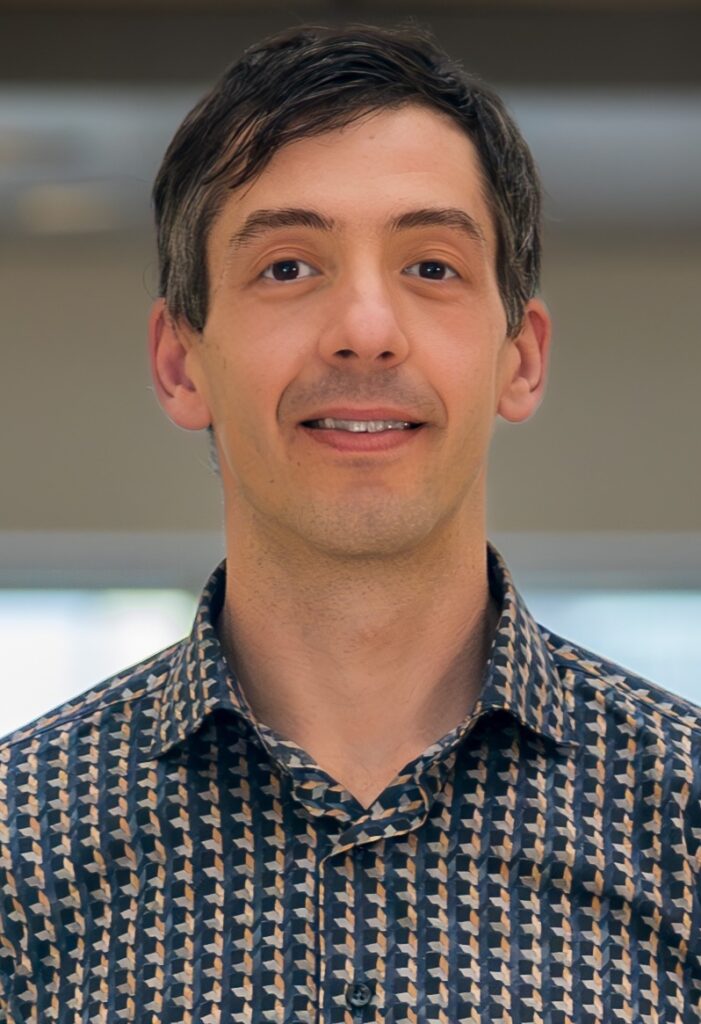
Professor Michael Rotondi of the School of Kinesiology & Health Science at York University was named an Applied Public Health Research Chair by the Canadian Institutes of Health Research (CIHR) and the Public Health Agency of Canada to further advance a career dedicated to supporting the priorities of local Indigenous communities.

Rotondi’s appointment on March 26 to the 2024 cohort of Applied Public Health Research Chairs means he will receive $1.15 million in funding over six years to build on over a decade of working in partnership with Indigenous community health service providers to develop and apply advanced statistical techniques to improve the health of First Nations, Inuit and Métis Peoples living in urban areas. Only 45 of these prestigious Chairs have been awarded since 2008, and Rotondi is the first professor at York to receive one and join the distinguished cohort.
“I am honoured to receive the award and humbled and grateful for the trust that the local Indigenous community partners and Elders have placed in me to help support their research and policy goals,” says Rotondi.
The Chair – titled Indigenous Health Counts: Combining Respondent-Driven Sampling, Partnerships and Training to Empower Urban Indigenous Communities – will advance several of Rotondi’s existing initiatives, including partnering with Statistics Canada to develop more accurate population counts of Indigenous Peoples living in cities and measuring the long-term impact of the COVID-19 pandemic on chronic health and mental health outcomes like diabetes, kidney disease, depression and anxiety in local, urban Indigenous populations. He will also look to co-create a health data training program to train the next generation of Indigenous researchers in data analysis techniques.
“Due to long-standing systemic barriers, there is a lack of quantitative health researchers who identify as Indigenous,” says Rotondi. “With the support of this program, we look forward to the near future when there is a substantial number of Indigenous peoples who have developed their expertise in data analysis and statistical methods and are able to share their own ‘data stories.’”
Building on Rotondi’s statistical expertise in respondent-driven sampling, his goal is to help address the lack of reliable health information for First Nations, Inuit and Métis Peoples in Canadian cities in order to identify and address large services gaps, and to advance the health and well-being of the local Indigenous community.
“I always see statistics as a tool to help, whether it is helping individuals, or entire communities. As an ally, my goal is to support the local Indigenous community to tell their own stories and help ensure they have the tools and information available to advocate for their needs,” says Rotondi.
In previous research, Rotondi and collaborators have determined that official census data vastly undercounts the local Indigenous population in Toronto, which leads to a critical inability to ensure the local Indigenous community receives appropriate health and social services. Rotondi and collaborators have also produced important data throughout the COVID-19 pandemic, providing one of the only sources of reliable data examining the rates of COVID-19 transmission and vaccination for Indigenous Peoples living in cities.
These studies have fallen under the Our Health Counts projects, which aim to create comprehensive health and wellness information for Indigenous Peoples living in urban areas, and have been developed in partnership with Well Living House and urban Indigenous service providers in six Ontario cities over 15 years.
His Chair program will continue to build on these community priorities. “I am excited to continue this work with the Indigenous community partners and local municipal, provincial and federal government agencies,” says Rotondi. “The results of this program will have substantial impact at the individual, community and policy levels.”
